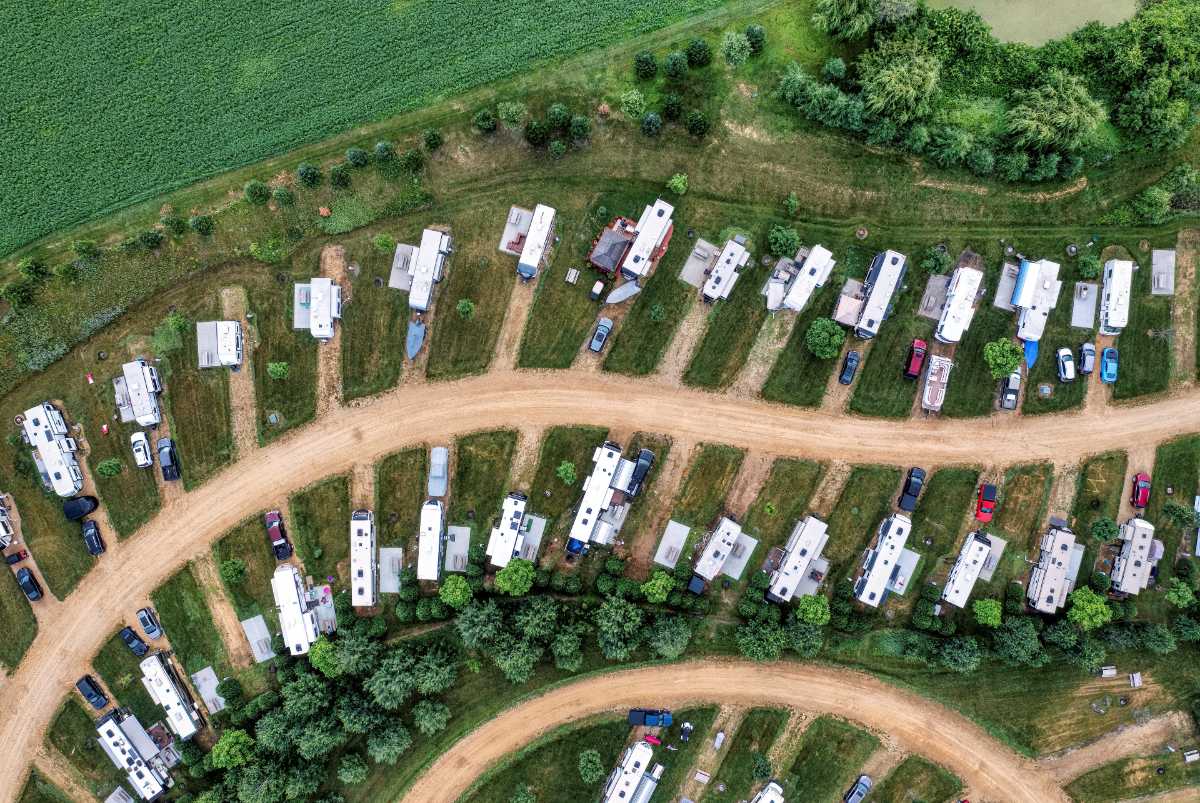Owning an RV park can be a great way to make money while doing something that you love. But, starting your own RV park is no easy task.
There are several steps involved and lots of planning and budgeting required. In this article, we’ll discuss how to get started on how to start an RV park and become a successful campground owner.
If you’re an experienced and passionate camper, you know what it’s like to spend a lot of time in your RV and finding a good camp ground.
You’ll need to decide which type of property best suits your needs. Is it going to be a small family-run business or will you aim for one that’s larger with more amenities?
You also need to consider things like location and whether you want customers from all over the country or just in your local area. Once you’ve decided these details, it’s time to start getting organized and putting together an action plan for success!
And of course, there are some practical considerations such as zoning regulations, licensing requirements, and insurance coverage that must be taken care of before you can start an RV park.
With proper research and preparation, however, setting up an RV Park doesn’t have to be overwhelming – if done right, it could become the perfect side hustle or full-time career! So let’s dive into what it takes to turn your dream into reality.
1. Choosing The Right Location
Starting an RV park is a bit like putting together a jigsaw puzzle. It requires finding the right pieces, placing them in their correct positions and making sure it all fits properly before you can enjoy your work of art.
Choosing the right location for your new business venture is one of those crucial pieces to make sure everything runs smoothly.
The first step when deciding on a location to start an RV park is to research potential locations that best fit the needs of the business.
Factors such as local zoning regulations, nearby attractions, access to public transportation or highways, available utilities and land size should be taken into consideration during this part of the process.
Researching similar parks located within driving distance will help provide insight into pricing trends and customer demand in different markets.
It’s also essential to consider what types of amenities you want to offer at your RV park in order to attract customers and stand out from competitors.
Deciding whether there are going to be full hook-up sites with electric service and water/sewer connections, or just primitive camping facilities would depend on factors including geography, population density (if applicable) and budget constraints among other things. Knowing these details ahead of time can give you a better idea about which area might be more suitable for starting an RV Park.
With all this information gathered, now comes the task of identifying specific parcels of land that meet all necessary criteria while being able to turn a profit over time – doing so may require some negotiation in terms of price points between landowners and yourself.
Before jumping into any agreement however, it’s important to thoroughly research local zoning regulations related to running an RV park in that particular jurisdiction; not doing so could lead to costly delays down the road if certain permits aren’t obtained beforehand!
2. Researching Local Zoning Regulations
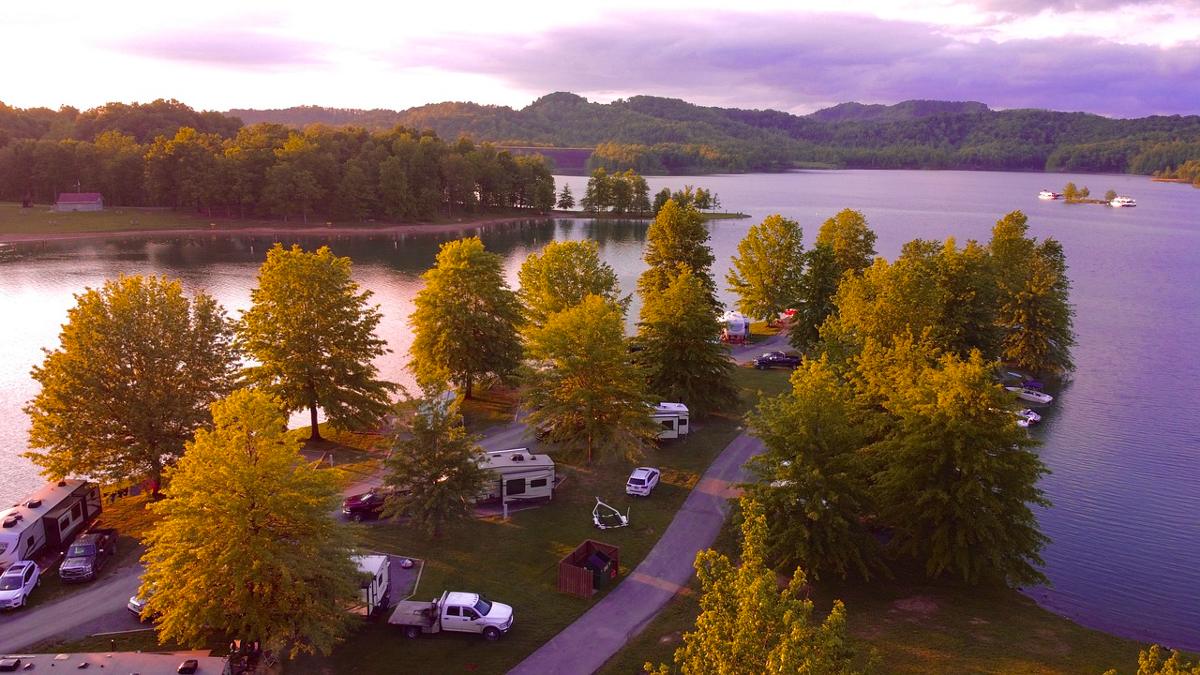

Choosing the right location for your RV park is only half of the battle. It’s also important to research local zoning regulations before officially starting up your business.
It’s essential that you determine what type of permit or license you need in order to run a successful RV park. Here are some things to consider when researching local zoning regulations:
- Check with city and county government offices to find out if any special permits are required.
- Make sure there are no restrictions on the number of RVs allowed at one time.
- Research land use regulations, such as noise ordinances, camping rules, and other provisions imposed by local authorities.
- Determine whether there are any environmental hazards nearby (e.g., power lines).
- Ensure that all signage complies with local laws and ordinances.
Knowing exactly which permits or licenses you will need can save you time and money down the road. After gathering this information, you’ll be ready to start establishing your business plan for your new RV park!
3. Establishing Your Business Plan
Starting an RV park can be a great business venture if approached correctly.
According to the RV Industry Association, over 11.2 million people in America own recreational vehicles and that number is growing every day. Establishing your business plan is key for ensuring success of any new enterprise and launching an RV Park is no different.
Creating a detailed business plan should include financial information such as budgeting, accounting systems, funding sources and more. You’ll want to create a marketing strategy specific to the area where your park will be located – this includes understanding customer demographics and what competitors offer. You may also need to consider government regulations including zoning laws within the community which could impact how much space you have available for parking spots or other amenities.
Your plan must also account for purchasing land or renting existing facilities, building costs (if necessary), staffing requirements and insurance coverage plans. With all these elements put together, it’s important to explore options on offering additional services like laundry rooms, swimming pools or playgrounds that might attract customers when selecting the right amenities for your RV park.
4. Selecting The Right Amenities
Once you have determined the financials, it’s time to move on to selecting the amenities that will draw customers in. When choosing what features your RV park should offer, there are several factors to consider: cost, customer preference and convenience.
Here are a few items to think about when deciding which services or activities your RV Park should provide:
- Laundry facilities
- Swimming pool
- Playground area for children
- Pet-friendly areas for walking pets
- Rental cabins or spaces for camping tents
- Wi-Fi access throughout the entire property
When creating an ideal amenity package, finding balance is key. As you plan, remember that each feature comes with a certain level of maintenance and upkeep costs – so be sure not to overspend! Also, if budget allows, adding luxury touches such as fire pits, outdoor kitchens or hot tubs can make all the difference in providing a memorable experience.
Choosing the right amenities will help ensure your guests have everything they need during their stay while also helping maximize profitability for your business. Now that you’ve selected these options, it’s time to start designing the layout of your RV Park.
5. Designing The Layout Of Your RV Park
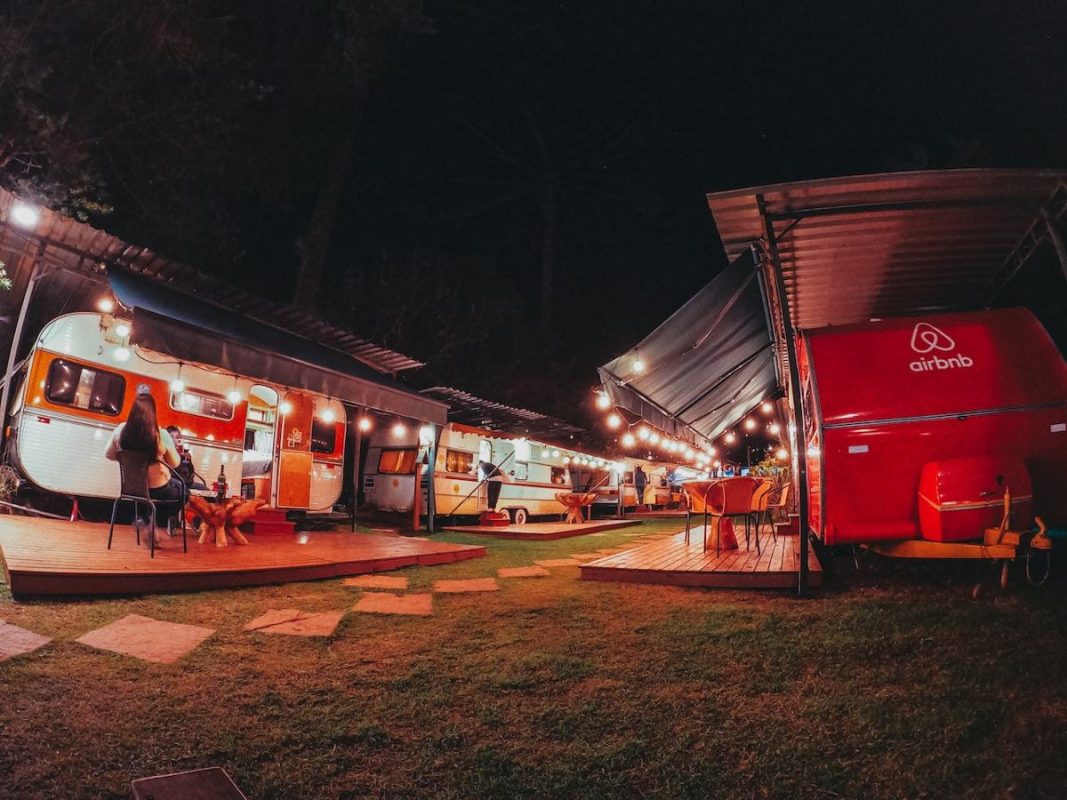

Designing the layout of an RV park is a crucial step for any entrepreneur looking to make a successful business. It’s important to consider what amenities your guests will need, where they should be placed, and how to ensure that each area has enough space while also providing privacy.
First, decide on which types of sites you’d like to offer – such as full hook-ups with water, sewer, and electricity; or primitive sites without those services.
Obviously your full hook-up sites will be more expensive to set up and maintain than those without, so you’ll need to make sure you calculate this into your considerations.
Think about how many spots you want in each type – not too few so that customers can’t find availability but not too many either since this will reduce the value of individual stays. Once these decisions have been made its time to start mapping out your property.
When planning the layout of your RV park it’s best practice to use measurement markers like flags or stakes planted at regular intervals around the perimeter and throughout the site itself.
This helps create a sense of orderliness and organization when creating driveways and pathways between campsites as well as visualizing common areas like playgrounds, gazebos or picnic tables located near certain clusters of lots.
With careful consideration into all aspects of design, owners can create an inviting atmosphere for their guests while keeping their costs low by making efficient use of available land resources.
From here we move onto financing your RV Park – understanding what funding options are available and how to maximize potential profit margins.
6. Financing Your RV Park
Financing your RV park is like a jigsaw puzzle. The pieces need to fit together and the picture must be complete before you can proceed. Finding the right funding source is essential, as it will provide not just the funds necessary for the development of the project but also peace of mind.
There are several ways to finance an RV park: savings, credit cards, loans from friends or family, crowdfunding sites, and traditional bank loans. Savings should always be used first if available; however, depending on how much capital is needed for such a venture, this may not be enough.
Credit cards offer quick access to cash with minimal paperwork; however they come with high interest rates that could become costly over time.
Loans from family or friends can help bridge financial gaps without having to worry about interest payments; however it’s important to remember to keep things professional by setting up payment schedules and expectations ahead of time.
Crowdfunding platforms allow entrepreneurs to reach out directly to potential investors who believe in their projects – these investors get perks in exchange for their contributions which helps attract more attention (and money).
There are also traditional banking options like applying for Small Business Administration loan guarantees – this route requires great deal of preparation including submitting detailed business plans and projections along with other documentation showing proof of ability to repay debt obligations.
No matter which financing strategy works best for you, make sure you have done all your research beforehand so that when the opportunity presents itself you’re ready to strike! This groundwork will put you one step closer towards marketing your RV Park successfully.
7. Marketing Your RV Park


It is often said that a business isn’t successful until it’s marketed. This theory holds true for RV parks, as well.
Establishing an effective marketing plan can be the difference between success and failure in this industry. With some planning and creativity, you can get your park off to a great start.
Here are some tips for marketing your RV park and getting some good traction right off the bat:
- Partner with local RV dealerships and other businesses to offer discounts or referrals to your park.
- Participate in local events such as festivals, charity events, or trade shows and set up a booth to promote your park.
- Create a website and social media pages for your park and share photos, videos, testimonials, and incentives for potential guests.
- Get listed in local online directories such as Yelp, Google My Business, Bing Places, and any other directory websites and encourage reviews from satisfied customers.
- Reach out to local and online media outlets such as newspapers, magazines, blogs, or podcasts and pitch stories about your park’s unique features or benefits.
- Consider running Google Ads for searches like “rv park near me” to try to capture searchers looking for a stop near your location.
By taking these steps into account when formulating a marketing plan, you’ll set yourself up with the best chance of getting noticed by prospective guests — ultimately leading to increased customer satisfaction and profitability.
As long as you stay focused on providing quality services at competitive prices while maintaining effective promotional techniques, your RV Park should be able to draw both new and repeat visitors year after year without much stress.
Frequently Asked Questions
Here are some common questions about how to start an RV park.
What Is The Best Way To Set Rates For An RV Park?
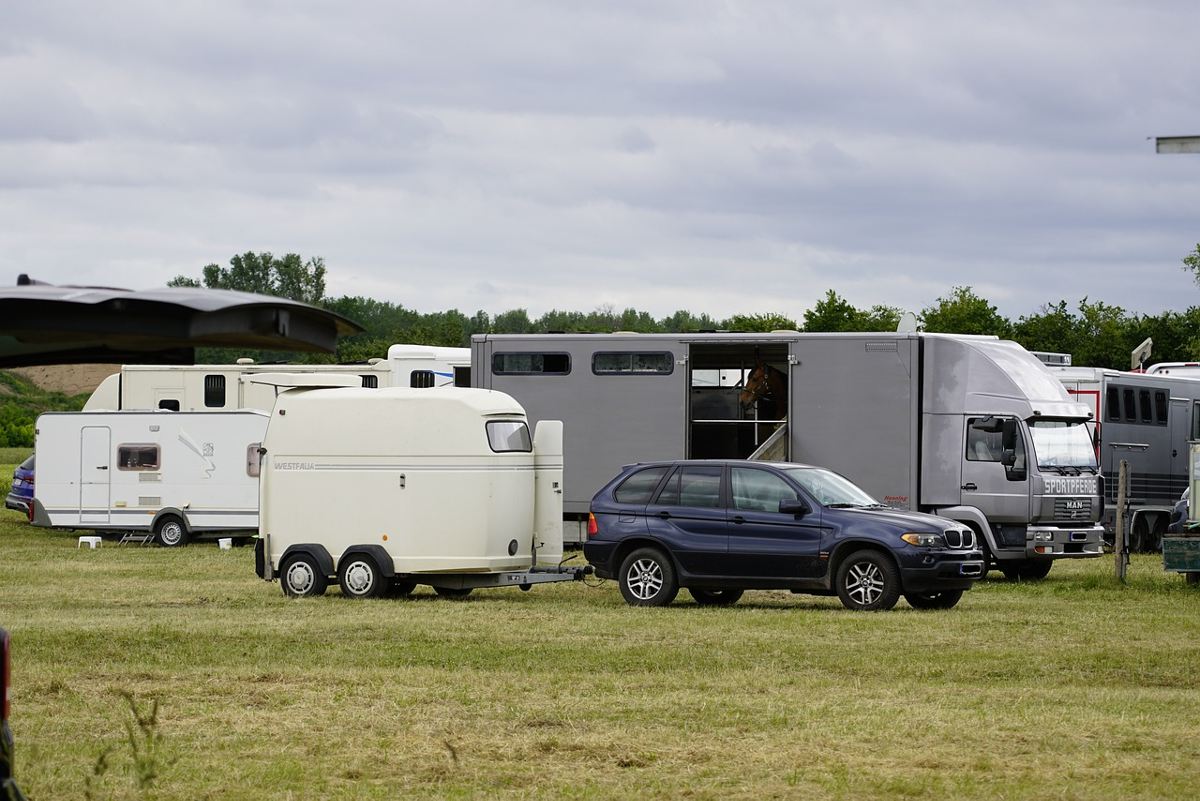

When it comes to setting rates for an RV park, the most important factor is knowing how much you can charge without pricing yourself out of the market. It’s important to consider several factors in order to determine what your rate should be.
Here are some important factors that weigh into how much you can charge customers to stay at your RV park:
- Location: The location of the rv park can affect its rates depending on the demand, supply, and attractiveness of the area. For example, an rv park near a popular tourist destination or a scenic spot may charge higher rates than one in a remote or less appealing place.
- Amenities: The amenities offered by the rv park can also influence its rates. For example, an rv park with full hookups, Wi-Fi, laundry facilities, showers, restrooms, playgrounds, pools, etc. may charge higher rates than one with basic services or none at all.
- Season: The season can affect the rates of an rv park depending on the weather and the number of visitors. For example, an rv park may charge higher rates during peak seasons such as summer or holidays when more people are traveling and looking for accommodation than during off-seasons such as winter or weekdays when there is less demand.
- Size: The size of the rv park can affect its rates depending on the availability and variety of sites. For example, an rv park with more sites may charge lower rates than one with fewer sites because it can accommodate more guests and offer more options. Conversely, an rv park with larger sites may charge higher rates than one with smaller sites because it can provide more space and comfort for bigger rigs and vehicles.
- Quality: The quality of the rv park can affect its rates depending on the cleanliness, maintenance, security, and customer service of the facility. For example, an rv park with well-kept grounds, clean facilities, friendly staff, and secure gates may charge higher rates than one with poor conditions,
rude personnel, and lax security. - Reputation: If the RV park has a good reputation and positive reviews from previous customers, it can attract more travelers and charge higher rates. If it has a bad reputation or negative reviews, it may lose customers and lower its rates.
- Supply & Demand: If there are more RV travelers than available spaces, the rates will go up. Conversely, if there are more spaces than travelers, the rates will go down.
Research other RV parks and resorts nearby that offer similar services. Take note of their rates, amenities offered, location, and popularity.
This will help you get a better understanding of going rates in your area. You could also look at campsites that are close by as well if they have different price points than traditional RV parks or resorts.
Decide which type of pricing model works best for your business.
Some examples include seasonal fees with discounts for longer stays; flat-rate prices based on per night stay; bulk discounts when booking multiple nights; or offering monthly rates with a discount off each month’s fee after staying more than 30 days. Consider rewards programs like loyalty cards as another option too!
TIP: When deciding on prices for your RV park or resort, think about what value you’re providing customers so that you can set competitive yet profitable rates for visitors. Make sure to check online reviews from guests who’ve stayed there before so that you know how satisfied people are with their experience at your property – this can help guide your decisions when determining final costs.
How Do I Hire And Manage Staff For An RV Park?
Running an RV park is like running any other business. As with any business, once you get to a certain level you need to hire and manage staff to be successful.
If you are looking for places to hire employees for a new RV park, you have several options depending on your needs and budget. One option is to use online job boards like Indeed where you can post your openings and browse through resumes of potential candidates.
Another option is to hire work campers who are RVers themselves and willing to work for a free or discounted parking site, utilities, and other perks.
Some of the positions you might need for your RV park include camp host, maintenance worker, housekeeper, office staff, security guard, activities director, and store clerk. You can also look for local workers in nearby towns or cities by advertising in newspapers, flyers, radio stations, or word-of-mouth.
When hiring new staff for your RV park, look for people who are outgoing and friendly.
They should also have a good understanding of the area and know how to answer questions from guests about local attractions or events, or at least be willing to learn.
Consider finding someone experienced in hospitality management that can oversee all of the operational aspects of the park such as maintenance and bookkeeping.
You’ll also need to be sure that they are reliable and trustworthy employees; this could mean performing a background check or referencing their past employers.
When managing your team, make sure they understand their duties clearly from day one – clear expectations pave the way towards success.
Setting up regular check-ins ensures everyone stays on track and gives employees an opportunity to voice their concerns or suggest ideas. Furthermore, recognizing great work by giving rewards will motivate them to do better every day.
So if you want your RV Park to run smoothly, invest time into finding great staff members and building strong relationships with them through effective communication and support. That way you’ll create a harmonious environment where both customers and employees can thrive!
What Is The Best Way To Keep An RV Park Safe And Secure?
Safety and security should be a priority in any RV park. While it’s important to make sure guests feel welcome, they also need to know that their property is safe while at the park.
There are many ways to keep an RV park secure, ranging from simple measures like good lighting and access control to more complex systems such as surveillance cameras or alarm networks.
One of the most effective methods for keeping your RV Park safe is through active supervision. This means having staff onsite who can monitor activity around the premises, respond quickly to incidents, and deter criminals before anything happens.
The key here is making sure you have enough employees so that there’s always someone available during peak hours. Providing employees with proper training on how to safely handle suspicious behavior will help ensure everyone stays safe.
It’s also essential to create clear policies about what activities are allowed at the park and which ones aren’t; this includes things like rules against drugs, alcohol consumption, and unruly behavior.
Having these guidelines clearly posted throughout the area can help remind guests of acceptable behavior and discourage any potential troublemakers from entering in the first place.
All of these steps combined can go a long way towards ensuring your RV Park remains secure and pleasant for all its visitors.
How Do I Provide The Best Customer Service For RV Park Guests?
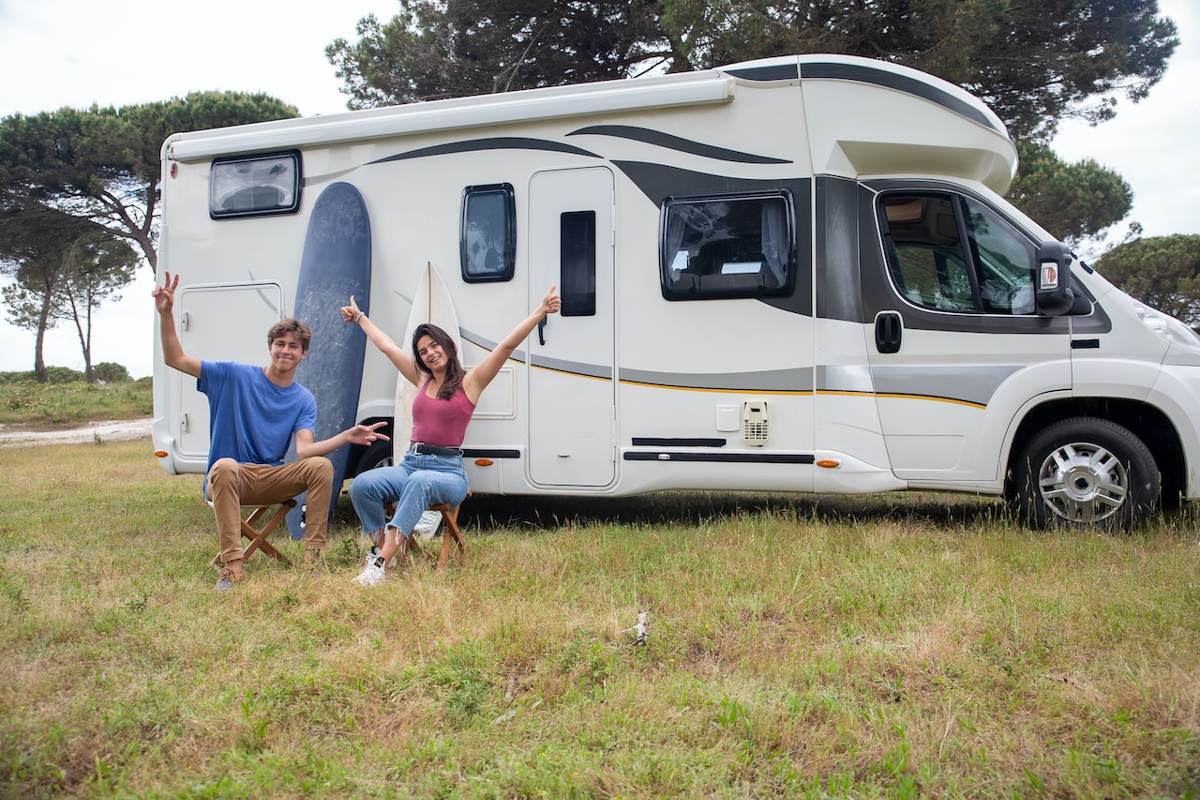

Providing excellent customer service is the cornerstone of any successful RV park. After all, it’s the guests that make your business thrive! To ensure a pleasant and memorable experience for each guest, there are several steps you can take:
Get to know your guests:
- Make conversation with them while they’re setting up their campsite or as they pass by.
- Ask them about their travels and what brought them to your RV Park.
- Show genuine interest in getting to know them better.
Maintain an organized campground:
- Keep common areas clean and tidy at all times; remove any debris from walkways or parking lots quickly.
- Ensure that facilities such as bathrooms, showers, laundry rooms, etc., are regularly cleaned and stocked with necessary items like toilet paper and soap.
Offer helpful advice & tips:
- Give recommendations on nearby attractions – restaurants, parks, beaches – based on what type of activities best suit their likes and interests.
- Suggest ideas for how they can get around town – bus routes, bike rentals/shares – if they don’t have access to a car or other transportation methods.
By taking the time to create these connections with visitors to your RV park, you will be able to build relationships of trust with your customers so that they feel comfortable returning again in the future.
Through simple but meaningful interactions like these, you’ll help foster a sense of community and hospitality among those who visit your establishment-allowing both you and your guests alike to enjoy greater satisfaction during their stay.
What Are The Best Practices For Maintaining An RV Park?
Running an RV Park is a challenging but rewarding experience. To ensure the safety and satisfaction of your guests, you must maintain high standards for cleanliness and customer service. Here are some best practices to keep in mind when running your park:
First, be sure to adhere to all local ordinances and regulations. Make sure that you have the proper permits in place before operating the park. This will help ensure that visitors feel safe at your location and avoid any legal issues down the road.
Second, provide plenty of amenities for guests. From laundry facilities to recreational activities, having something for everyone will make them more likely to return year after year. Additionally, consider offering discounts or other incentives so customers can save money while enjoying their stay with you.
Third, invest in quality maintenance equipment and staff members who can use it properly. Regularly inspect buildings and grounds for potential hazards or damage from weather conditions such as storms or heavy winds. Hire professionals if necessary to repair anything that has broken down over time due to wear-and-tear or natural disasters.
Finally, remain vigilant about keeping up with repairs on things like plumbing fixtures and electrical wiring – these should never be neglected!
Here are a few things you absolutely need to make sure you do that will help you maintain your RV Park:
- Inspect and clean the electrical, water and sewer hookups regularly. Replace any damaged or worn-out parts.
- Mow and trim the grass, weeds and bushes around the RV sites and common areas. Remove any trash or debris.
- Check and repair the roads, driveways and parking lots. Fill in any potholes or cracks. Apply sealant if needed.
- Clean and sanitize the restrooms, showers, laundry facilities and other amenities. Stock up on soap, paper towels, toilet paper and other supplies.
- Test and treat the water supply for quality and safety. Monitor the water pressure and temperature.
- Maintain the pool, spa, playground and other recreational facilities. Check for any damage or hazards. Clean and disinfect them regularly.
- Paint and repair the fences, gates, signs, buildings and other structures. Replace any broken or missing parts.
- Update and enforce the park rules and regulations. Communicate with the guests and staff about any issues or changes.
To conclude, following these best practices helps guarantee visitor’s comfort during their stay as well as protect against liability risks associated with running an RV Park business.
With careful planning and preparation ahead of time, you can create a positive environment where people feel welcome and relaxed each time they visit your establishment!
Starting Your RV Park
As I’m sure you know by now, starting an RV park is no easy feat. However, with the right planning and execution, it can be a profitable venture.
It’s important to set rates that are fair to both you and your customers. Hiring staff who have experience in customer service and hospitality will help ensure guests feel welcomed and safe. Providing top-notch security measures will give people peace of mind when visiting your park.
Finally, maintaining high standards for cleanliness and upkeep of facilities will keep guests coming back time after time – like déjà vu!
It’s also essential to stay up-to-date on industry trends; this could mean anything from implementing modern amenities or experimenting with digital marketing techniques.
No matter what direction you take your business, having a clear vision and mission statement will provide guidance throughout the process.
As long as you prioritize providing excellent customer service and meeting the needs of your guests, there’s nothing stopping you from running a successful RV Park!
So don’t hesitate – get out there and start creating your own little slice of paradise today! With hard work and dedication, you’ll soon be living the RV dream!
